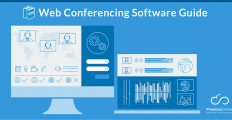In the United States about 43 million housing units are occupied by tenants as of 2020. This is likely to continue due to coronavirus-related hardships and housing prices going up nationwide. It’s no surprise that renting is a more affordable option than buying for many Americans. Many potential buyers are finding it difficult to save enough money for a down payment, so in the meantime they continue renting as they wait for the housing market to cool down.
Saving for a down payment while keeping your budget organized are both equally important. At the end of the day, nobody wants to spend their last dime on a rent payment. It’s important to acquire financial management skills and learn how to properly manage your income and expenses while you’re saving to purchase a home.

The 30% Rule of Thumb
The 30 percent rule is the common recommendation to spend no more than 30% of your monthly income on rent. But as rent prices surge nationally – the average apartment rent has risen by 9.2% during the first six months of 2021 – the 30% rule has become less feasible. Apartments for rent in Salt Lake City, Utah, for example, can be rented at the price of $1,500 on average.
As an alternative, you can consider the 50/30/20 method for organizing your finances. According to this method, you can spend 50% of your income on essentials, 30% on your “wants” and save 20% of your income each month. As long as you are still saving every month, you can determine yourself what portion of your gross income goes towards your rent.
Top 5 Budgeting Tips
Managing money requires a few basic skills you’ve probably heard of. In general, it’s all about determining your net worth first and then creating the budget for the year ahead (or at least a few months ahead). But there are also a couple of other things you should pay attention to when examining your personal finances.
Let’s take a closer look at five tips that will help you manage your money wisely while renting a home:
1. Set your financial goals
Whether you’re planning to invest in something or make a large purchase, setting financial goals before developing your budget is essential. Once you have a clear picture of what you need and want, the goal-setting process is a piece of cake. Always try to set realistic goals that will meet your expectations. Dreaming big is great but coming up with a feasible plan for achieving something will help you stay more organized when moving towards your goal.
2. Take advantage of technology
If you’re looking for a place to rent, optimize the process with the help of online property management services. For instance, Rentler will help you search for listings based on criteria you provide. You can also create one application and submit it to multiple places to more quickly find the right place. Also, if your landlord uses a rental software system to manage their properties, make sure you utilize the same system. Paying rent online and keeping track of your rental-related expenses in one place help you keep all of your finances organized.
In addition, you may want to consider using budgeting apps to streamline your personal and business finances.
3. Guide your spending decisions
Creating a budget is just an initial step. It can be challenging to stick to a budget and avoid impulse buying even if you feel it’s worth it.
It may seem as if the most expensive purchases are the best ones. However, this is not always the case. Cutting costs on trivial yet quality things and choosing affordable options will pay off in the long run. If you can, use discount codes or coupons even if you can afford more expensive goods or services.
As a tenant, you should keep in mind that along with monthly rent payments, you may need to pay for utilities, pet fees and deposit (if you’re a pet owner), renter’s insurance, application fees (prior to moving in), etc.
Along with working out a budget, list out your monthly expenses to better understand exactly where your money is going on a daily basis. Check it at the end of each month and try to analyze your spending habits. It’s very likely you’ll see where you can save and what purchases could have been avoided.
Overall, recording expenses makes you stay on top of your finances.
4. Be a smart shopper
Making smart shopping decisions will not only benefit your financial situation but will also reduce negative impact on the environment. Buying less means that you’re only getting items you really need, not superfluous things that will clutter your space and you may not really end up using.
In turn, staying away from unnecessary purchases will keep your rental more organized and will help you save more money in the long run. Once you practice smart consumption, you’ll be surprised how easy it is and how little you truly need.
5. Have an emergency fund
It is crucial to build an emergency fund in the event of unexpected circumstances such as medical expenses, rental maintenance, car repairs, etc. It’s recommended that you set aside at least six months’ worth of expenses for an emergency savings fund.
During the pandemic, millions of tenants struggled to pay rent and were at risk of eviction. If they were not protected by eviction moratoriums, the number of evicted renters would have skyrocketed.
Having a healthy savings account and using that money to cover rent during financial hardship is a reasonable solution.
Final thoughts
If you’re a tenant planning to become a homeowner in the future, properly organizing your finances while renting is a surefire way to understand the basics of budgeting and start saving enough for a down payment. It also encourages you to make smarter spending decisions and keep your purchases under control.


























Leave a comment!